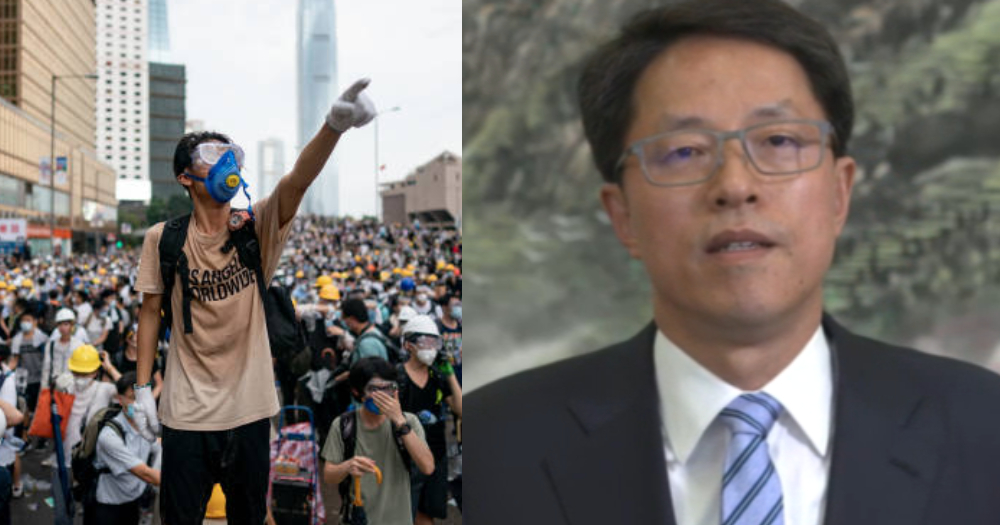The new national security law for Hong Kong is like an antivirus software that will help it run smoothly, top Beijing official Zhang Xiaoming said, South China Morning Post (SCMP) reported.
National Security law will remove Hong Kong's political virus
Zhang, the deputy director of the Hong Kong and Macau Affairs Office (HKMAO), was speaking on Monday, June 8, at a webinar marking the 30th anniversary of Hong Kong's Basic Law -- its mini constitution.
In the most extensive comments on the new legislation from a top Chinese Communist Party official so far, he likened the newly-announced national security law as an anti-virus software for Hong Kong that will eliminate the "political virus" that is "Hong Kong independence".
Quoting the late Chinese leader Deng Xiaoping, Zhang said while the central government would not intervene in Hong Kong's affairs, it must step in when "chaos" emerge.
Once the law is in force, it will enable the "one country, two systems" arrangement to run more "safely, smoothly, and enduringly", he said.
He hinted that the legislation is a means to end Hong Kong's instability, saying it is a decisive measure by Beijing to ensure the "long-term and stable implementation" of the city's unique arrangement with Beijing.
Those who think Hong Kong can influence the mainland are "delusional"
Zhang also hit back at critics who claimed that Hong Kong could be a "Trojan horse" to influence mainland China by introducing changes, saying these people were "anti-communist and anti-China forces" who want to seize power in Hong Kong.
The idea that Hong Kong could bring about socio-political change in mainland China was voiced by the United States after the 1997 handover, and raised by pro-democracy activists in Hong Kong.
U.S. Secretary of State Mike Pompeo, in his announcement that Hong Kong is no longer autonomous from Beijing, after the latter's move to impose the national security law on Hong Kong, said the U.S. has once hoped that "free and prosperous Hong Kong would provide a model for authoritarian China".
Rejecting his comments, Zhang said such an idea is "utter delusion".
Law only targets "small number of people"
Zhang also sought to assure the people of Hong Kong that the law would only target an "extremely small number of people", AFP reported.
The law has proposed for mainland security agencies to operate in Hong Kong for the first time, but Zhang clarified that they would only act "when needed".
While the law has been criticised for clamping down on dissent in Hong Kong, he said such agencies will abide by local laws, act according to local laws, and abide by the city's independent judiciary system.
Hong Kong's problem is political, not economic
In addition, Zhang said Hong Kong's major problem is "not economic, housing, employment... or young people's mobility".
He said it is "a political problem" -- a rare statement from a senior Beijing official.
Chinese state media previously cast the protests as being caused by bread-and-butter issues, such as sky-high housing prices and cost of living.
However, Beijing has increasingly portrayed the city's political crisis as a threat to its national security, citing separatists' call for independence.
Both the central and Hong Kong government have dismissed the protests that started a year ago in Hong Kong as foreign-backed operations meant to destabilise the Hong Kong society, and mainland China.
Protesters have also been labelled as thugs and rioters for clashing with the police, holding up traffic and destroying public property.
The law is likely to be enacted before the city's legislative elections in September, Reuters reported.
Top image adapted via Anthony Kwan/Getty Images & Hong Kong Information Services Department
If you like what you read, follow us on Facebook, Instagram, Twitter and Telegram to get the latest updates.
